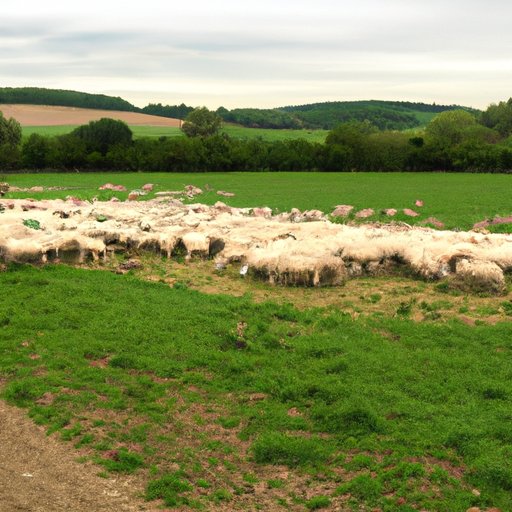
Introduction
Consumers are increasingly concerned about the food they eat and the impact it has on their health and the environment. Free-range farming has become a popular subject in recent years for those seeking sustainable, ethical and healthier options. This article will provide an in-depth explanation of what free-range farming is and what it entails. Additionally, we will explore the benefits of choosing free-range products over conventional ones, how to navigate labeling and marketing tactics, the environmental impact of free-range farming, its historical perspective, and ethical considerations for consumers.
Explanation
Free-range farming, also known as free-range animal husbandry, is a type of farming practice in which animals are allowed to move freely outdoors, often grazing on vegetation. This is a more humane approach to agriculture than conventional factory farming because the animals are not confined to small spaces and have space to move around and access the outdoors.
Free-range farming also involves providing healthy diets, clean water and suitable shelter for animals. The animals have access to a natural environment where they can exercise and socialize with other animals. In addition, free-range farming does not involve the use of hormones or antibiotics that are commonly used in conventional farming.
The benefits of choosing free-range products over conventionally produced ones are numerous. They are often considered to be healthier, containing higher levels of nutrients and lower levels of fat, due to the animals’ outdoor lifestyles and more natural diets. Additionally, free-range products typically taste better due to the animals’ high-quality diet and living conditions.
Consumer Guide
When it comes to purchasing free-range products, it’s important to know what to look for and how to navigate labeling and marketing tactics. The term “free-range” can sometimes be used loosely and may not always mean the animals are actually allowed to roam freely outdoors. Therefore, it is important to find products that are certified by reputable organizations, such as Certified Humane, which has strict guidelines for free-range farming practices.
Another key consideration for consumers is choosing products that are locally sourced. This not only supports smaller-scale farmers, but also reduces the carbon footprint that comes with transporting products long distances. Consumers should also be aware of the differences between organic and free-range, as they are not interchangeable terms, and both types of farming have their unique benefits and challenges.
Environmental Impact
The environmental impact of free-range farming is complex. While it offers many benefits, such as reducing the use of fertilizers and pesticides, it can also lead to increased land use, water usage and methane emissions compared to conventional farming.
However, there is a growing body of evidence that suggests free-range farming practices can be beneficial for the environment, particularly when it comes to preserving biodiversity and carbon sequestration. Free-range farming can help to maintain grasslands and prairies that provide critical habitats for wildlife, and the animals themselves can contribute to soil health and carbon sequestration.
Historical Perspective
The concept of free-range farming is not new. It has been practiced for centuries in many parts of the world, with roots in indigenous cultures and traditional farming practices in Europe. The advent of industrial agriculture and large-scale commercial farming led to the decline of free-range farming practices. In recent years, however, it has seen a resurgence due to growing consumer demand for ethical and sustainable food choices, supported by a rise of small-scale farmers who are embracing this farming practice.
Ethical Considerations
Free-range farming raises important ethical considerations for consumers and society as a whole. Proponents of free-range farming argue that it is a more humane approach to animal husbandry and can reduce suffering in animals often kept in cruel and cramped conditions. The practice also promotes animal welfare and more sustainable farming practices.
However, the issues surrounding ethics in free-range farming are complex and multifaceted. While free-range practices may be a vast improvement over conventional factory farming methods, there are still concerns surrounding the slaughter of animals and whether it is ethical to breed and raise animals for human consumption. Consumers should consider these ethical considerations when choosing whether to support and consume free-range products.
Conclusion
Free-range farming offers many benefits, including more humane treatment of animals, better environmental sustainability, and healthier and tastier food choices for consumers. However, consumers should be aware of labeling and marketing tactics when choosing free-range products and be mindful of the environmental impact of the farming practices. Ethical considerations, such as animal welfare and the morality of consuming animals, must also be taken into account. By choosing to support and buy free-range products, consumers can contribute to a more sustainable and humane food system.




